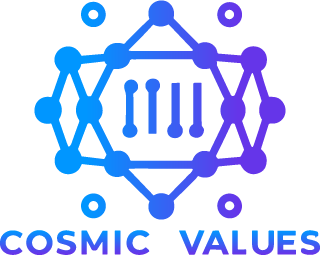Building a web development is like building a road: it requires building a multi-layered infrastructure. This structure must be continuously upheld to prevent a decline in overall quality over time. This also applies to PHP when developing websites.
People frequently find themselves juggling multiple tasks at once and staying aware of approaching deadlines. They are responsible for carefully designing all the key components of a website, including functionality, UI/UX design, and project management.
It is also a challenge to have to modify the code multiple times before getting the desired outcome. Developers try to avoid doing this task again at all costs.
Managing code in a proper code environment raises questions in the minds of web developers, especially when integrating various web design components without compromising website functionality turns out to be a complete hassle. I may hold you.
After all, using PHP is the perfect solution to make your website perfect.
In this regard, you may be wondering why PHP is his preferred choice for web development when there are numerous other development options.
As you read through this blog post, you will be able to delve deeper into the PHP perspective and gain a comprehensive understanding of its valuable features.
What is PHP?
PHP, or Hypertext Preprocessor, is a popular backend programming language for web applications because it is a flexible programming language that is mainly used for server-side scripting tasks. PHP’s ability to create reliable web servers justifies its use in web development.
PHP acts as a bridge between the web server, which displays HTML content, and the database, which stores data. Because of its syntax, which is similar to that of languages like C and JavaScript, PHP programmers can easily understand and utilize it.
This scripting language is open source and provides all necessary resources to developers for free. Developers can easily integrate the code into any of their web development projects. As a result, a large developer community has adopted the PHP language and now maintains and improves it.
Which PHP features are most important for web development?
1. Open-source language
PHP is an open-source language that provides developers with access to these templates and reusable code. Versions of PHP are constantly being improved upon by the community, making it even better than before.
2. backend development
Because PHP and HTML are easily connected, you can efficiently manage many databases at once. In charge of managing database functions, including adding, deleting, altering, and editing data. PHP can also grant access to server files and store and encrypt cookie data.
3. Object-oriented programming
PHP acts as a backend scripting language and uses data compiled in HTML. Provides support for object-oriented programming, including classes and objects. These classes are systematically categorized based on their attributes and functionality (methods). This object differentiation creates a well-structured and organized code base.
4. Dynamic and User-Friendly Interface
PHP allows developers to choose how to convert data, giving them flexibility in handling both strong and weak variable types. As a result, a web server can freely distribute content in a variety of formats.
5. Code is Convenient to Execute
Simple code structures are used by the backend scripting language, which provides a great deal of flexibility in terms of adding, changing, or deleting data. It also makes efficient debugging and reworking code for testing easier. Because of these benefits, a lot of committed PHP developers have decided to work with this web language.
6. Easy to understand
PHP offers an easy-to-understand and user-friendly syntax, making it suitable for implementing web design. This quality will prove beneficial to individuals with varying levels of expertise, from beginners to experienced developers.
What are the use cases for PHP development?
1. Web development
PHP has server-side scripting capabilities that allow you to seamlessly integrate your code into HTML. This streamlines the creation of cohesive web pages and provides PHP developers with an easy-to-use platform for building their websites and web applications.
2. Content Management System (CMS)
Building a Content Management System (CMS) in PHP requires advanced programming knowledge. Many custom PHP development services make use of content management systems (CMS) like WordPress, Joomla, and Drupal. Because of its powerful server-side scripting features, PHP can handle database content management with ease.
3. E-commerce platform
Online business platforms are becoming increasingly popular among businesses, and PHP is a highly regarded programming language for their development. PHP is often used to build key functionality such as shopping carts, product catalogs, and seamless integration of content management systems into e-commerce websites.
4. Web APIs and services
PHP is a versatile programming language commonly used in web development. It is good at handling HTTP requests and processing data efficiently. PHP allows you to easily generate JSON or XML responses and interact with multiple databases in a seamless and synchronized manner.
5. Chat application
To ensure quick responses in chat applications, the availability of accurate information to generate the output of client-side requests is a key requirement. In this context, PHP proves to be an excellent choice for backend development services. It integrates seamlessly with databases and allows for real-time updates. This allows the system to generate responses like a real human.
Top Code Editors and IDE for PHP Development
An Integrated Development Environment (IDE) designed specifically for PHP is an extremely useful tool that makes code execution much easier. Given that coding is a laborious process, integrated development environments (IDEs) are essential for increasing efficiency and completing projects more quickly. Nevertheless, working with a skilled PHP developer is crucial to realizing these tools’ full potential.
1. PHP Storm
One of the best PHP Integrated Development Environments (IDEs) for editing HTML, PHP, and JavaScript code is PHPStorm. With the help of this powerful tool, developers can improve the functionality of websites through code refactoring, configuration management, and effective debugging. Simple yet efficient design elements are incorporated into its user-friendly interface to guarantee quick application launches.
2. Net Beans
This PHP-based integrated development environment (IDE) is designed for Java and is compatible with Windows, Solaris, Linux, and macOS operating systems. Netbeans allows a developer to create his web applications using modular components, thereby simplifying the process of designing cross-platform web applications.
3. Eclipse
Eclipse is a popular free integrated development environment (IDE) used primarily for Java-based programming. This versatile platform offers numerous extensions and plugins that allow developers to efficiently write, edit, and test code for web development projects.
4. Laminas
Originally known as Zend Framework, the codebase was transferred to Laminas Corporation. This open-source tool plays a versatile role in powering a variety of web components, including content management systems (CMS), e-commerce platforms, messaging systems, and more.
5. Visual Studio Code
This paragraph describes a free and open-source PHP integrated development environment (IDE) tool developed by Microsoft. This PHP code editor is compatible with various platforms such as Windows, MacOS, and Linux. Its features are particularly useful for improving web server performance, such as code debugging and configuration management.
How do I choose the right PHP IDE?
1. Compatibility with the system
Different integrated development environment (IDE) tools provide different capabilities for website development. Compatibility varies by operating system to ensure efficient code execution. To choose the best PHP IDE for your project, consider its compatibility with your specific operating system.
2. Debugging
Testing your website’s performance is essential and choosing the right PHP integrated development environment (IDE) can provide significant benefits. It’s important to choose an IDE that streamlines the debugging process with minimal effort. By working with an experienced PHP software developer, you can determine the best PHP IDE for this task.
3. Code completion
Developers are focused on completing projects efficiently and spend a lot of time structuring their code. Choosing an integrated development environment (IDE) with automated code suggestions can significantly reduce the time required to complete web projects.
4. Client-side functionality
Code completion improvements go beyond just scalability. It should be customizable to support different programming languages depending on the project requirements. Integrated development environments (IDEs) allow developers to customize client-side functionality by implementing refactorings, configuration adjustments, and optimized navigation.
The Coming Future of PHP
There’s a consensus that, when it comes to development services, performance, and functionality, programming languages like JavaScript have surpassed PHP. But this is a far cry from the truth.
Services for custom PHP development are still very much in demand and are not likely to go out of style anytime soon. PHP’s capacity to improve web servers holds the potential to completely transform the online experience, bringing about innovations that will improve our digital lives.
More precisely, PHP may find use in a few fields in the future.
PHP in IoT
The Internet of Things (IoT) awaits a future where it will be integrated into everyone’s lifestyle. Whether it’s IoT in smart cities or smart homes, we can only imagine what lies ahead.
PHP plays an important role in introducing IoT technology into daily life and collecting databases about various IoT applications.
PHP in Chatbots
Chatbots are already becoming ubiquitous. Nowadays, users mainly use applications that generate reactions, which become viral phenomena.
PHP plays an important role in responsive applications by facilitating the use of server-side databases with real-time data entry. It also enables client-side data collection to continuously improve server database optimization.
PHP in Cloud
Many companies today rely on cloud-based applications to optimize their workflows. However, cloud apps connect the client side and the server side and primarily operate on a server database.
This is why modern programming languages such as PHP encourage data collection to optimize business processes on the fly.
The last word
Among the myriad programming languages available, PHP remains the leading platform with numerous qualitative features for breakthrough software development. Although websites and web applications will continue to transform in the coming years, PHP will maintain its place as the foundation for building websites.
PHP is compatible with a variety of databases, frameworks, and content management systems (CMS), allowing for rapid development and seamless scalability of web applications. Its open-source nature fosters a continuous development environment, making PHP a reliable and robust programming language for developing customizable features for his website.
This clarifies the question why PHP is preferred for his web development as it provides many beneficial features for website development. To capture large databases and achieve load times of seconds on your website, you need to deploy a database. Moreover, by hiring a PHP developer, you can also create an attractive user interface that gives your website an innovative thrust.
Optimize custom PHP development services for web server maintenance and faster website speed.



